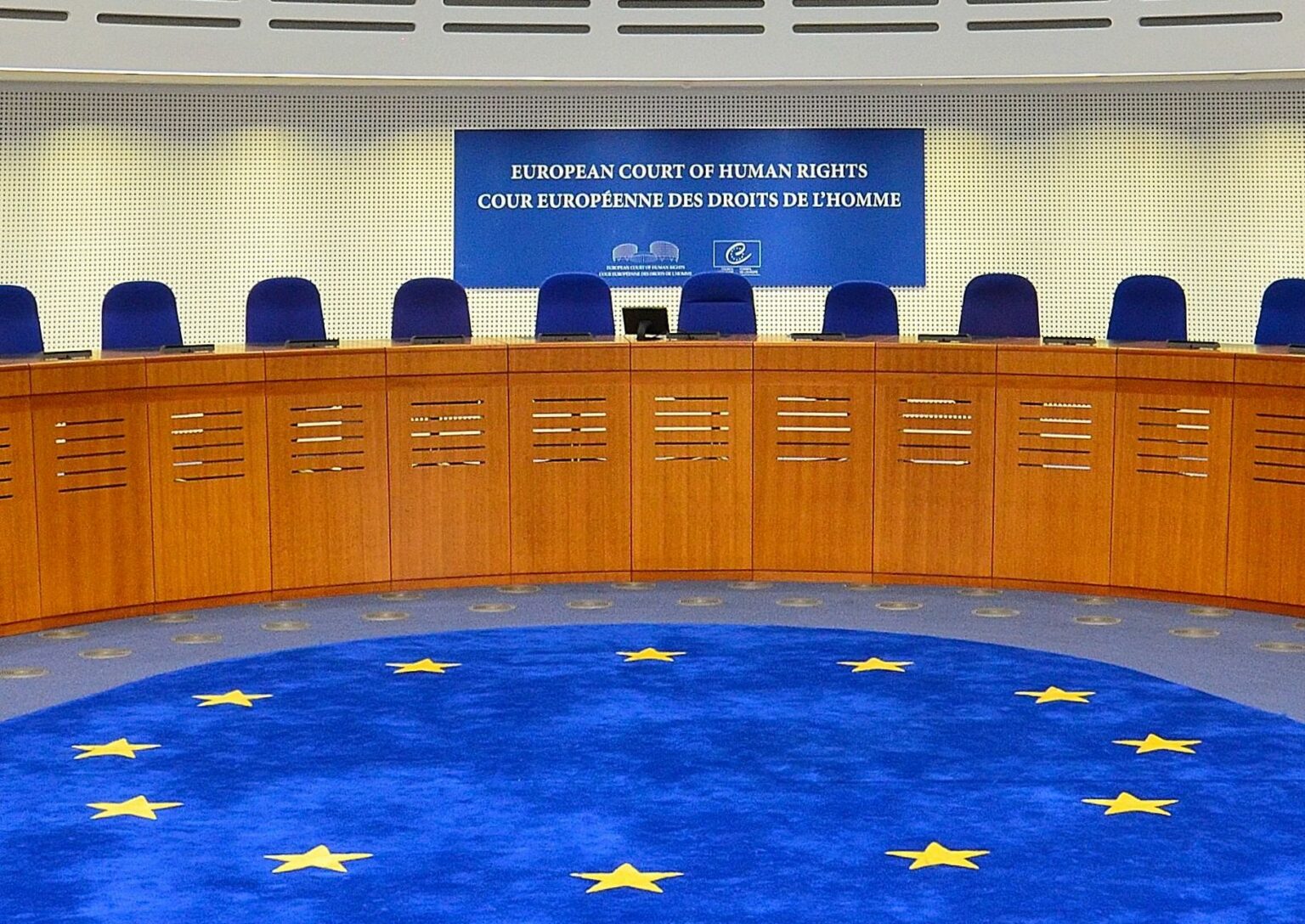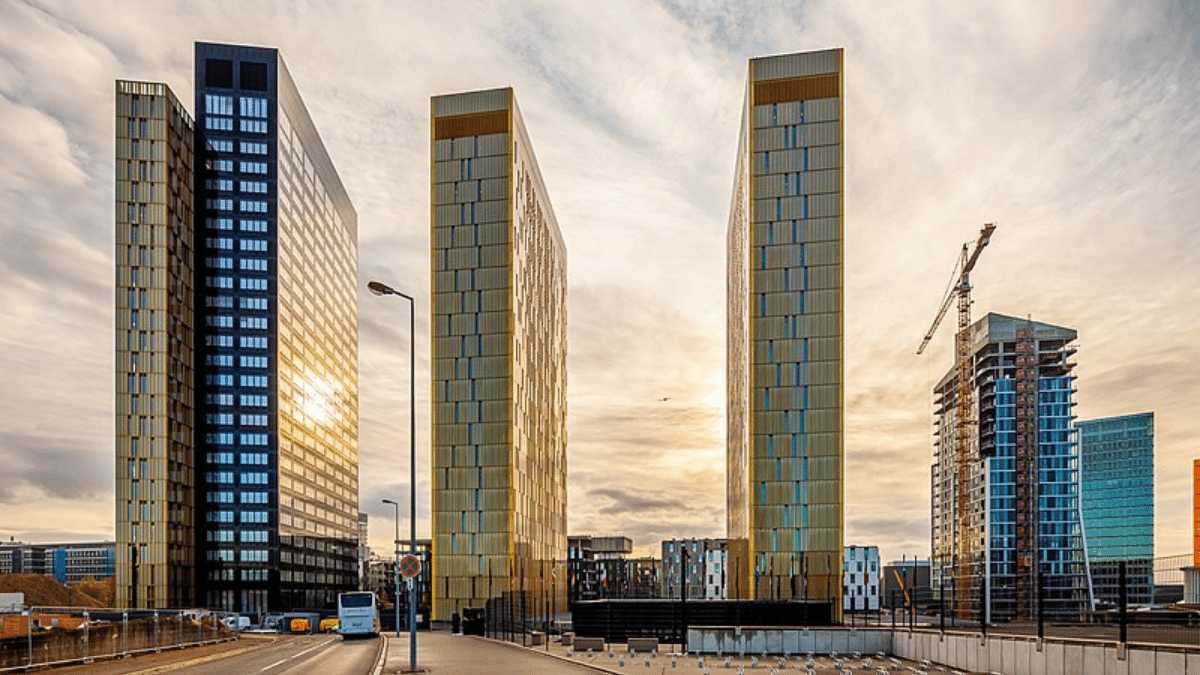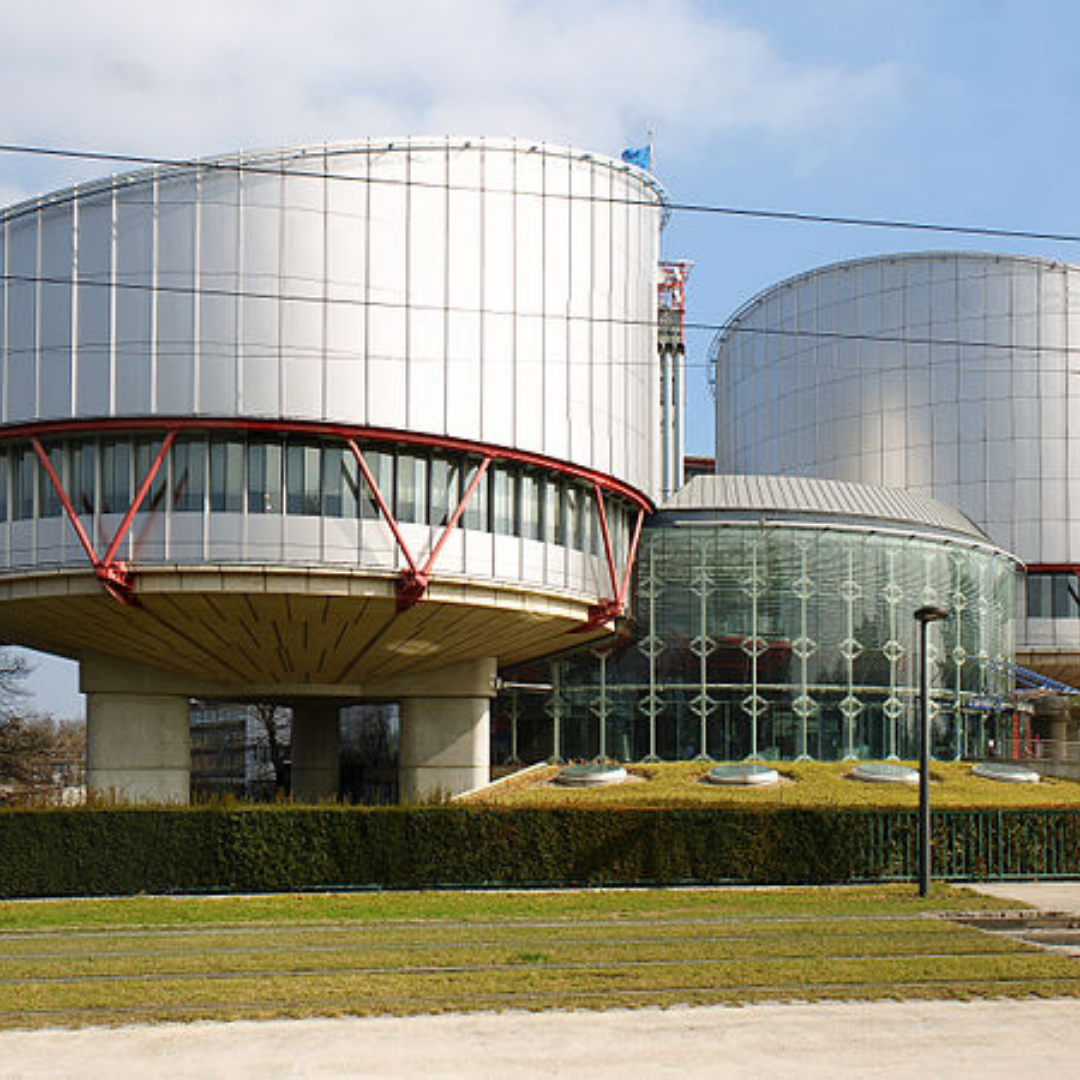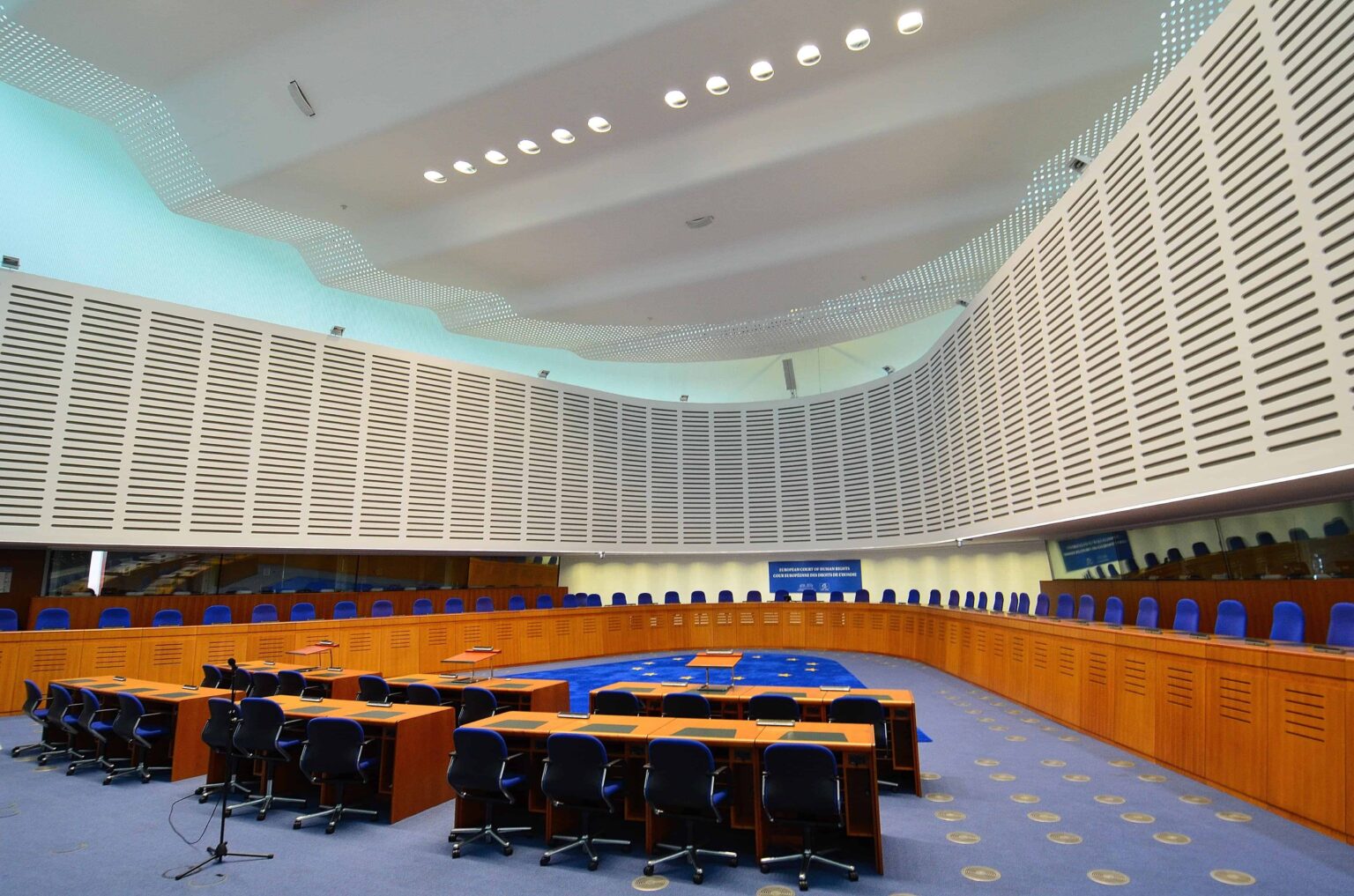A.B. and K.V. v Romania

Recognition of same-sex marriages in the context of freedom of movement in the EU through the prism of implementation of CJEU’s Coman judgment
Submitted jointly by ILGA-Europe and AIRE Centre
Macaté v. Lithuania

Freedom of expression, warning labels restricting artistic expression.
Submitted jointly by ILGA-Europe, Professor David Kaye, International Justice Clinic, University of California, Irvine, School of Law and ARTICLE 19: Global Campaign for Free Expression.
Judgment in Case Stolichna obshtina, rayon ‘Pancharevo’

Child, being a minor and a Union citizen, whose birth certificate was drawn up by the host Member State and designates as parents two persons of the same sex: the Member State of which the child is a national is obliged to issue an identity card or a passport to that child without requiring a birth certificate to be drawn up beforehand by its national authorities.
Coman and Others v Romania

Recognition of same-sex marriages in the context of freedom of movement in the EU through the prism of implementation of CJEU’s Coman judgment.
Submitted jointly by AIRE Centre, ICJ and ILGA-Europe.
V.D. v Russia

Asylum
Submitted jointly by ILGA-Europe, AIRE Centre, ICJ and UKLGIG.
A.H. and Others v Germany

Recognition of trans parenthood.
Submitted jointly by ILGA-Europe, TGEU, and Bundesverband Trans*.
Find here the communicated case.
The Court made its decision on 4 April 2023, which found that it is within the State’s discretion to list a trans parent on their child’s birth certificate using a “deadname” and sex assigned at birth.
Buhuceanu and Ciobotaru v. Romania

Recognition of same-sex unions.
Submitted jointly by ILGA-Europe, FIDH, NELFA and ECSOL.
Y. v France

Recognition of non-binary identities.
Submitted jointly by ILGA-Europe, OII Europe, and C.I.A. (Collectif intersexes et allié-e-s).
B and C v Switzerland

Asylum/ arbitrary refoulement
(Application no. 889/19), 18 December 2019
Find here the communicated case.
Find here our press statement regarding the judgement.
- The applicant is a national of Gambia. He is in registered same-sex partnership with a Swiss national. The applicant complains about the refusal of a residence permit and his impending expulsion to Gambia where he would face a risk of being subjected to treatment in breach of Article 3 of the Convention.
- ILGA-Europe together with the European Council on Refugees and Exiles (ECRE) and the International Commission of Jurists (ICJ) submitted the following:
- Criminalization of consensual same-sex sexual conduct is incompatible with international human rights standards and is discriminatory. Besides, the absence of data on the implementation of criminal law may in itself be evidence of oppression and threats suffered by LGBTI persons.
- Concealment constitutes evidence of the objective well-foundedness of a subjective fear of persecution. Requiring coerced concealment of someone’s same-sex sexual orientation – as a way, purportedly, to mitigate the real risk of their being exposed to Article 3 prohibited treatment – constitutes pain and suffering amounting to proscribed treatment under Article 3 even if temporary. Mental harm resulting from fear of exposure to physical harm has been found by the ECtHR to constitute cruel, inhuman and degrading treatment. According to refugee law, in some cases psychological harm is persecutory.
- Enforcing removals on the basis that the individuals concerned would be expected to conceal their sexual orientation would constitute arbitrary refoulement and thus violate Article 3 ECHR.
- In Gambia, consensual same-sex sexual activity can give rise to a number of very serious criminal offences, with penalties ranging from seven years to imprisonment for life. In turn, the criminalization of consensual same-sex sexual relations fosters a climate of state-sanctioned homophobia, resulting in abuse, discrimination and violence by state and non-state actors. The mere existence of laws that criminalize consensual same-sex sexual conduct enables, encourages and contributes to the persecutory environment that exists in Gambia and exposes LGBT individuals to real risks of persecutory harm.
Armine Oganezova against Armenia

Hate speech and violence against LGBTI people.
(Apps nos. 71367/12 and 72961/12), 15 October 2019
Find here the communicated case.
- The applicant was a well-known member of the LGBT community in Armenia and co-owner a club where members of the LGBT community would meet to socialise. She had attended Istanbul Pride in 2011 and given interviews to some media outlets criticising Armenia’s human rights record. As a result she became the subject of an online hate campaign because of her sexual orientation. Shortly thereafter several people organised an arson attack on the club co-owned by her. She faced threats and harassment and was subjected to hate speech by high profile government representatives and members of the parliament. Given lack of anti-discrimination legislation in Armenia, applicant’s sexual orientation was not considered as a motive for the acts and there was no effective investigation.
- ILGA-Europe together with the AIRE Centre, the ICJ and Human Rights Watch submitted the following:
- The identity of victim of violence as an LGBT person should be taken into account in the assessment of Article 3 violations. Indeed the discrimination directed towards LGBT persons may indicate a particular motive and intent that may meet the threshold of Article 3 ECHR should be taken into account in the assessment of Article 3 violations. Indeed, discriminatory use of violence against a vulnerable group is an important factor and the ECtHR has acknowledged that LGBTI minorities may constitute vulnerable groups.
- Contracting States have a positive obligation under Articles 3 and 8 of the ECHR to protect from and investigate allegations of violence with discriminatory elements. According to the ECtHR, the State has a heightened burden of protection when there is prior knowledge of public hostility towards the LGBT community. These obligations are also widely recognized by current international and regional standards.
- Armenian legislation does not afford protection against explicitly homophobic or transphobic violence or threats or other incitement to such violence. In practice, LGBT persons and affiliates in Armenia continuously struggle to enjoy equality, both at personal and societal levels.
- It is of particular importance :
- To protect persons from violence, and put in place necessary legislative, policy and other measures for unmasking any discriminatory motive or intent present in the acts of violence.
- To ensure that a comprehensive anti-discrimination legislation is in place, and sexual orientation and gender identity are explicitly recognized as protected grounds for discrimination.
A.D.-K. & Others v. Poland

Adoption
(Application No. 30806/15), 25 July 2019
Find here the communicated case.
- The application concerns second-parent adoption, one means of creating a legal relationship between a child and her mother’s female partner, who is socially her second mother. One of the applicants in this case gave birth in a London hospital in 2011. The child’s original birth certificate indicated the second applicant as her mother and the first applicant as her parent. However, the Polish authorities refused to register the child’s birth certificate in the Polish Civil Status Register.
- ILGA-Europe together with FIDH, PSAL, NELFA and ECSOL submitted the following:
- In its Advisory Opinion of 10 April 2019, the ECtHR considered that the best interest of the child are paramount and he or she accordingly has an Article 8 right to the possibility of a legal parent-child relationship with the intended (non-genetic) mother. Member States are free to choose the means to create such legal relationship; such means may include adoption.
- Sexual orientation is a prohibited ground of discrimination under Article 14 ECHR and discrimination on this ground is considered ‘suspect’ and subject to ‘particularly severe scrutiny’. There is no justification for discrimination against families composed of a same-sex couple and the children they are raising together.
- There is a clear European and international trend concerning the possibility that a child may have two legal parents of the same sex after a second-parent adoption. Judicial reasoning in European and other democratic societies supports an obligation not to discriminate against same-sex couples and their children. A number of national courts have concluded that the best interests of children being raised by same-sex couples are served by permitting second-parent adoption.
Schlittner-Hay v. Poland

Rainbow family and children rights
(Apps no. 56846/15 and 56849/15), 23 July 2019
Find here the communicated case.
- The applicants – two twins born through surrogacy – complain that despite the fact that their biological father Mr S. is a Polish citizen, they were refused Polish citizenship by descent on the ground that their birth certificate indicated two men as their parents.
- ILGA-Europe together with the CRIN, the HFHR, the NELFA and the Polish Society of Anti-Discrimination Law submitted the following:
- The best interests of the child shall be a primary consideration in all actions concerning children. According to the ECtHR, parent-child relationships fall within the ambit of family life covered by Article 8. Refusal by State authorities to recognise existing family ties established under foreign law generally establishes interference in family life as well as private life.
- According to the Supreme Administrative Court of Poland (SAC), the fact that the child was born by a surrogate is irrelevant for his/her legal status since every child has the right to citizenship if one of his/her parents is a Polish citizen. National Courts similarly held that the established de facto relations between adults and the minor in whose family this is created must be established, promoted, protected and integrated, all in the best interests of the child.
- Sexual orientation is a prohibited ground of discrimination under Article 14 ECHR. Accordingly, the children of rainbow families should not be “penalised in [their] daily existence” simply because of their association with their parents because of their sexual orientation.
X. v Poland

Custody rights
(Application no. 20741/10), 19 July 2019
Find here the communicated case.
- Following a divorce, a mother was denied custody of her three children on grounds of her sexual orientation.
- ILGA-Europe together with FIDH, ICJ, KPH and NELFA submitted the following:
- The ECtHR expressly stated that the concept of one’s sexual orientation is a prohibited ground of discrimination under Article 14 ECHR and discrimination on this ground is considered ‘suspect’ and subject to ‘particularly severe scrutiny’. The Court has confirmed that parent-child ties and custody cases fall under Article 8, and applies to LGBTI parents’. In Salgueiro da Silva Mouta v. Portugal, the ECtHR considered that the refusal to grand custody over the child based on the applicant’s sexual orientation constituted a violation of Article 8 in conjunction with Article 14. The IACtHR reached the same conclusion in Atala Riffo y Ninas v Chile, where custody rights were denied to the mother due to her sexual orientation. A number of national courts in Europe and internationally have considered the custodial rights of gay and lesbian parents, affirming their right to equal access to children without discrimination based on sexual orientation.
- This case provides the Court with the opportunity to reaffirm its findings made in Salgueiro da Silva Mouta v. Portugal and confirm rights of parents irrespective of their sexual orientation or gender identity and expression to equal access to custody of their children.
A. against Azerbaijan and 24 other applications

Violence against LGBTI people
(Application no. 17184/18), 15 July 2019
Find here the communicated case.
- The present case involves targeted arrests, ill-treatment and forced medical examinations in detention of members of the LGBTI community in Baku.
- ILGA-Europe together with Civil Rights Defenders and REDRESS submitted the following:
- The status of the victim of violence as a sexual or gender minority should be taken into account in the assessment of Article 3 violations. Indeed, discriminatory use of violence against a vulnerable group is an important factor and the ECtHR has acknowledged that LGBTI minorities may constitute vulnerable groups.
- Forced medical examinations directed at LGBTI members constitute a breach of Article 3 and Article 8 of the Convention. International human rights bodies denounce cases of forced medical examinations, describing them as torture and ill-treatment. The context of detention, the environment of negative attitudes against LGBTI minorities and the discriminatory motives of the medical examinations are relevant factors for the Court’s finding of an Article 3 violation.
- Contracting States have a positive obligation under the Convention to investigate allegations of ill-treatment and torture with discriminatory elements. According to the ECtHR, a failure to unmask the role of possible homophobic motives constitutes an infringement of Article 3 in its procedural element in conjunction with Article 14 of the Convention.
- Widespread discriminatory laws and practices against LGBTI people in Azerbaijan underline their vulnerability to discriminatory torture and ill-treatment.
O.H. and G.H. against Germany

Legal gender recognition
(Apps. nos. 53568/18 and 54741/18), 25 June 2019
Find here the communicated case.
- The case concerns a transgender man who gave birth and applied to be registered as father to his child. The German authorities refused his request and registered him instead as mother under his former female forename.
- ILGA-Europe together with TGEU submitted the following:
- Restrictive LGR procedures hinder the ability of trans people to enjoy their family life. The law is often not adapted to their situations, as trans parents are frequently forced to disclose their trans identity because of a mismatch between public records and the children’s birth certificate.
- In 2018, the Parliamentary Assembly adopted a resolution asking States to provide for transgender parents’ gender identity to be correctly recorded on their children’s birth certificates. The Yogyakarta Principles specify that “States shall issue birth certificates for children upon birth that reflect the self-defined gender identity of the parents.”
- In Germany, the state de facto dictates a single possible parenting structure, enforces gender norms (a pregnant person is always a mother) and erases the lived reality of other possibilities. Consequently, birth certificates are often contradictory to the reality, forcing trans parents to reveal their trans identity, thus leading to frequent discriminatory and degrading treatments against trans parents and their children in their daily life.
- The Court made its decision on 4 April 2023, which found that it is within the State’s discretion to list a trans parent on their child’s birth certificate using a “deadname” and sex assigned at birth.
Maxim Grigoryevich Lapunov against Russian Federation

State violence against the LGBTI community.
(Application no. 28834/19), 16 April 2020
Find here the communicated case.
See also:
In a very recent judgement in the case of Azul Rojas Marin v. Peru, the Inter-American Court of Human Rights (“IACtHR”) classified as torture the detention and rape of the victim – who identified as a gay man at the time of the events– by police staff, and noted the violence was motivated purely by the victim’s sexual orientation, and therefore could be classified as a “hate crime”. The IACtHR concluded that such discriminatory torture not only breached the victim’s rights, “but it was also a message to all LGBTI people, as a threat to the freedom and dignity of this entire social group”.
See here full judgement, in Spanish.
ILGA-Europe had made an amicus curia submission in this case highlighting European Court’s approach on the issue of discriminatory torture and access to effective remedies.
A.D. against Georgia and A.K. against Georgia

Gender reassignment treatment required prior to LGR
(Applications nos. 57864/17 and 79087/17), 14 mars 2019
Find here the communicated case.
Communicated case:
- The present case concerns the Georgian authorities’ refusal to recognise the applicants’ gender identity unless they agreed to undergo gender reassignment treatment.
- In their joint submission ILGA-Europe and TGEU submitted :
- Gender identity is a basic attribute of self-determination, which is protected under the right to respect for private life (Article 8 ECHR). As acknowledged by the ECtHR, lack of accurate identification causes suffering. The right to gender self-determination has been affirmed by the Parliamentary Assembly and the Commissioner for Human Rights; and a clear European consensus to regulate LGR is emerging in Council of Europe member States.
- The diagnosis requirement is based on the pre-conceived idea that trans identities are inherently disordered. Pathologisation subverts an essential aspect of human personality and leads to serious human rights violations. In A.P, Garçon and Nicot v. France, the Court ruled that the requirement to undergo sterilisation or treatment involving a very high probability of sterility as a precondition to LGR was in breach of the right to respect for private life under Article 8 and engaged Article 3. Other recent regional developments suggest that the scope of the discretion available to States in the area of LGR is becoming narrower.
- Gender identity emerges as a protected ground under international anti-discrimination law. Research consistently indicates that trans people suffer from disproportionately high levels of violence, harassment and discrimination in all fields of life. For this reason they should qualify for heightened protection under Article 14 ECHR. Gender identity is protected under Article 14, although the language used by the Court to date has been inconsistent.
S.A.C. v UK

Arbitrary refoulement
(Application no. 31428/18), 28 February 2019
Find here the communicated case.
Communicated case:
- The applicant in this case complained that he that he would facea real risk of serious and irreversible harm under Article 3 of the Convention if he were to return to Bangladesh as a gay/bisexual man.
- ILGA-Europe together with the ICJ (International Commission of Jurists) and the UK Lesbian and Gay Immigration Group (UKLGIG) submitted the following:
- There is a consistent approach in the case-law relating to Bangladesh as a country where imputation, suspicion, discovery or identification of someone’s sexual orientation or identity as LGBT is likely to give rise to a real risk of serious harm.
- According to the ECtHR, treatment which is grounded upon a predisposed bias on the part of a heterosexual majority against a homosexual minority may, in principle, fall within the scope of Article 3. Under refugee law, prosecution may amount to persecution if the criminal law is enforced or punishment meted out in a disproportionate or discriminatory manner.
- Concealment constitutes evidence of the objective well-foundedness of a subjective fear of persecution. Requiring coerced concealment of someone’s same-sex sexual orientation – as a way, purportedly, to mitigate the real risk of their being exposed to Article 3 prohibited treatment – constitutes pain and suffering amounting to proscribed treatment under Article 3 even if temporary. Mental harm resulting from fear of exposure to physical harm has been found by the ECtHR to constitute cruel, inhuman and degrading treatment. According to refugee law, in some cases psychological harm is persecutory.
- Enforcing removals on the basis that the individuals concerned would be expected to conceal their sexual orientation would constitute arbitrary refoulement and thus violate Article 3 ECHR.
Iachimovschi v. the Republic of Moldova and 5 other applications

Violence against LGBTI people
(Nos. 21029/13, 40620/14, 23914/15, 26806/15, 32617/16 and 49542/16), 17 September 2018
Find here the communicated case.
- The applications concern violence caused by private individuals and/or the danger of repeated such violence, as well as the alleged insufficiency of investigations and/or impunity of the perpetrators by the Moldavian authorities.
- ILGA-Europe together with the Equal Rights Trust submitted that:
- It is critical that the potential application of Article 14 be given specific consideration wherever there is a prima facie case that violence is motivated by bias against LGBT+ persons. Bias-motivated violence impacts disproportionately and differently on members of minority groups, including LGBT+ persons. It thus demands a response which recognises its discriminatory causes and consequences.
- Positive obligations under Articles 14 and 3 encompass duties of prevention, protection, investigation and prosecution. Violations of Article 14 taken with Article 3 may be found where particular judicial or prosecutorial practices have a disproportionate impact on individuals of a vulnerable group and fail to take into account the discriminatory nature of the violence.
Minasyan and others v. Armenia

Incitement to discrimination/Hate speech
(Application no. 59180/15), 20 July 2018
Find here the communicated case.
- The applications involve newspaper publications containing discriminatory language and incitement to discrimination against the applicants due to their association with the LGBT community and/or their perceived sexual orientation. The Armenian courts ignored the allegations of discrimination based on actual or perceived sexual orientation and gender identity.
- ILGA-Europe together with TGEU submitted the following:
- The ECtHR and other authoritative bodies in Europe and beyond have recognised that homophobic and transphobic statements constitute hate speech. Besides, the Court held that homophobic and transphobic speech may violate Articles 8 and 14 ECHR due to its humiliating and stigmatising effect.
- Contracting States have a positive obligation to protect against and investigate hate speech. This obligation is heightened when hate speech is motivated by discrimination against one’s actual or perceived sexual orientation or gender identity. The margin of appreciation allowed to the State under Article 8 may be restricted because sexual orientation and gender identity are important facets of an individual’s private life and can be used as a marker of group identity. In addition, acknowledging a heightened level of protection does not contravene freedom of expression, which is not an absolute right and can be restricted according to Article 10(2).
- LGBT persons and affiliates in Armenia are prevented from seeking redress against hate/discriminatory speech, and continuously struggle to enjoy equality, both at personal and societal levels due to lack of of adequate legal framework and the hostile attitudes against the LGBT community.
X. against Romania and Y. against Romania

Legal gender recognition
(Applications no. 2145/16 and 20607/16), 26 June 2018
Find here the communicated case.
- The present cases concern two trans men who claim that their right to privacy and right to found a family have been violated. The legal framework on legal gender recognition in Romania remains uncertain, subjecting trans people to lengthy judicial procedures and pathologizing and invasive medical requirements when in their quest for recognition of their gender identity.
- The comments delivered by TGEU and ILGA-Europe on 26 June 2018 provide the Court with additional information on:
- developments on legal gender recognition in the wider international context, namely a steady gaining of ground for the recognition of trans people’s human rights and a move away from pathologisation of trans identities.
- The interveners discuss the European legal landscape showing that medicalised and pathologizing legal gender recognition procedures where the judiciary plays a substantial role are not in line with European human rights and equality law standards.